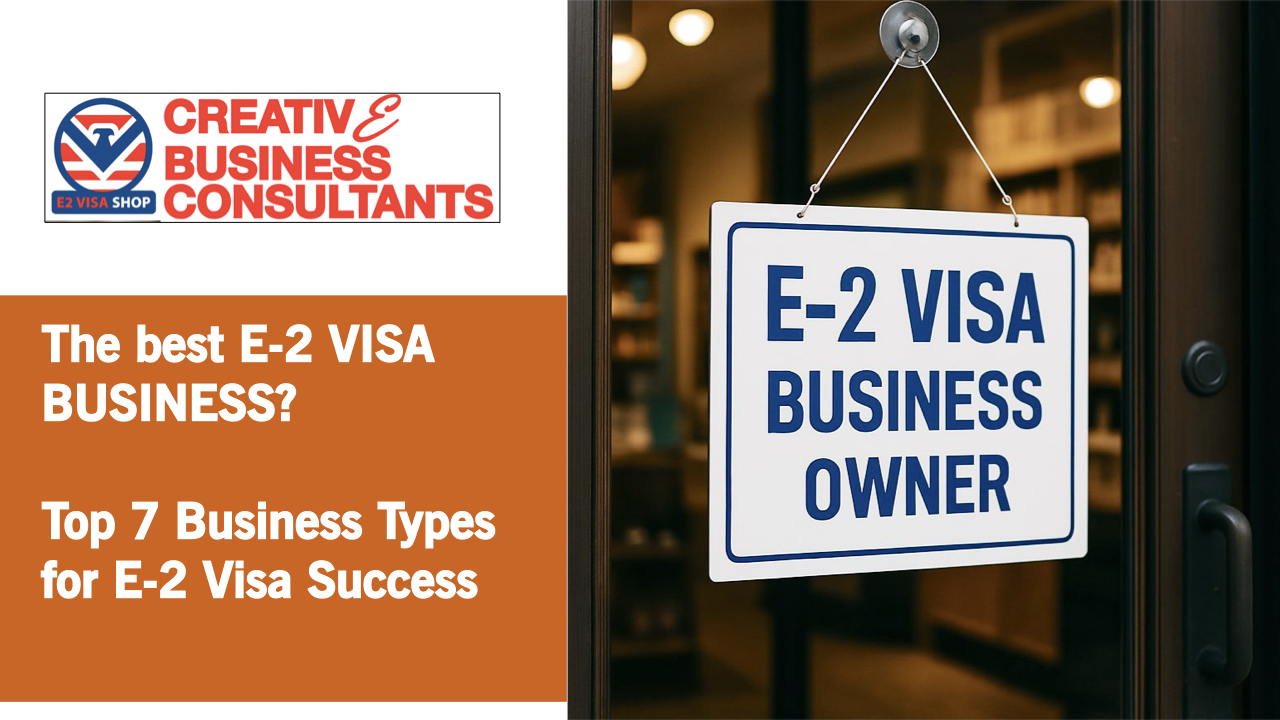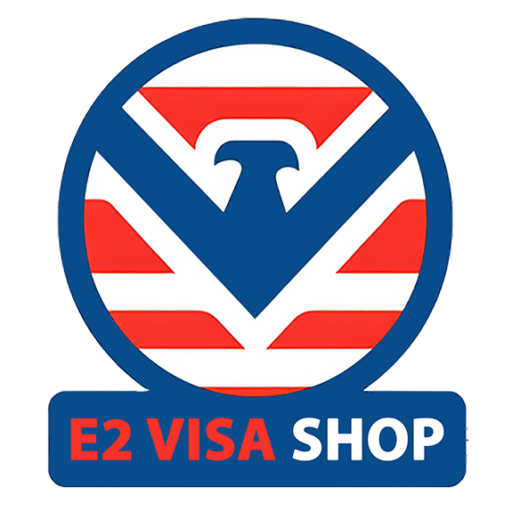
If you’re a foreign national looking to live and work in the United States through investment, the E-2 visa is one of the most flexible and accessible paths available. However, one of the most common — and crucial — questions people ask is: “Which business is best for an E-2 visa?”
The truth is, there is no single “best” business that fits all. Instead, the best business for an E-2 visa is one that meets a combination of personal, legal, and economic factors. That said, there are business types that consistently perform well for E-2 applicants due to their scalability, job creation potential, and overall visa compliance.
Let’s explore what makes a business E-2 worthy, and then break down some of the top-performing business types for E-2 success.
What Makes a Business E-2 Visa Compliant?
Before diving into business ideas, it’s important to understand the E-2 requirements from a U.S. immigration standpoint:
- Substantial Investment: The business must be funded with a substantial amount of capital — typically starting at $50,000 to $100,000 or more — depending on the industry.
- Active, For-Profit Business: The business must offer goods or services and cannot be a passive investment (e.g., real estate holdings).
- Marginality Rule: The business must generate more than just enough income to support the investor. It should create jobs or have the potential for economic impact.
- Ownership and Control: The E-2 applicant must own at least 50% of the business and control its operations.
- Operational or Ready to Launch: The business must be active or ready to begin operations at the time of the visa application.
Top 7 Business Types for E-2 Visa Success
These business categories are consistently seen as strong candidates for E-2 approval, particularly because they align well with USCIS guidelines and offer a clear, scalable pathway to growth:
1. Franchise Businesses
Franchises are a popular option because they come with a proven model, built-in brand recognition, and support. Immigration officers appreciate the structure and reliability that franchises offer.
Examples: Coffee shops, cleaning services, fitness centers, fast-casual restaurants, home healthcare.
Why It Works: Easy to forecast, strong job creation, and scalable with multiple locations.
2. Service-Based Businesses
Low overhead and high scalability make service businesses attractive. From marketing agencies to IT consultancies, service businesses work well if the applicant has industry experience.
Examples: Digital marketing, accounting, IT services, graphic design, language tutoring.
Why It Works: Can start lean and grow fast. Also great for skilled professionals transitioning from employment to entrepreneurship.
3. Logistics and Trucking Companies
For investors willing to get into U.S. freight and logistics, this industry offers strong margins and high demand.
Examples: Owner-operator trucking companies, dispatch services, freight brokerage.
Why It Works: Can start with one truck and scale. Generates steady revenue and job opportunities for drivers and admin staff.
4. Hospitality and Food Service
Restaurants, cafes, and quick-service locations are common for E-2 investors — especially those that tie into cultural or niche markets.
Examples: Ice cream shops, ethnic cuisine restaurants, boba tea shops, breakfast cafes.
Why It Works: Offers visible community presence and local job creation. Franchised or independently branded options are both viable.
5. Real Estate Services (Active, Not Passive)
While you can’t invest passively in rental properties for an E-2 visa, you can build active businesses in the real estate ecosystem.
Examples: Property management, real estate brokerage, short-term rental management companies.
Why It Works: Easy to tie to job creation. Good for applicants with sales or construction experience.
6. Beauty, Wellness & Fitness Studios
Self-care and fitness are booming industries in the U.S. Entrepreneurs with a passion for this space can succeed with the right business structure.
Examples: Beauty salons, waxing centers, boutique gyms, yoga studios, med spas.
Why It Works: Strong demand, scalable, and suitable for owners who can be hands-on or hire licensed staff.
7. eCommerce and Retail Operations
Online businesses are growing every year. When structured properly, eCommerce can be E-2 compliant, especially when it includes warehousing, marketing teams, and operational staff.
Examples: Niche product stores, Amazon resellers, drop shipping with fulfillment centers.
Why It Works: High margins, global reach, and room for employment through customer service, logistics, and content creation.
Honorable Mentions
- Laundromats and cleaning services (if staffed and managed actively)
- Education centers or daycares
- Pet services (grooming, boarding, etc.)
- Event management or catering companies
Pro Tips: Choosing Your Best E-2 Business
- Play to your strengths: Choose a business you understand or are passionate about. Immigration officers favor applicants who show experience or knowledge.
- Focus on job creation: Build a staffing plan that shows how you’ll hire U.S. workers within 12–24 months.
- Keep it simple, scalable, and smart: You don’t need a million-dollar business. You need a smart, legal, and clearly operating business that shows growth potential.
- Have funds at risk: Your investment must be committed before your interview. Bank statements and receipts matter.
- Work with professionals: A solid business plan, corporate formation, and immigration strategy can make all the difference.
Conclusion: The Best E-2 Business Is the One That Works for You
There’s no one-size-fits-all answer. The best business for an E-2 visa is one that combines your background, budget, and passion — and meets all visa requirements.
Whether you’re buying a franchise, starting a trucking business, launching a coffee shop, or opening a digital agency, the key is showing that the business is real, operating, and ready to grow.
Need help deciding which direction to go? Consider booking a consultation with an E-2 business planning expert who can guide you through the process.
